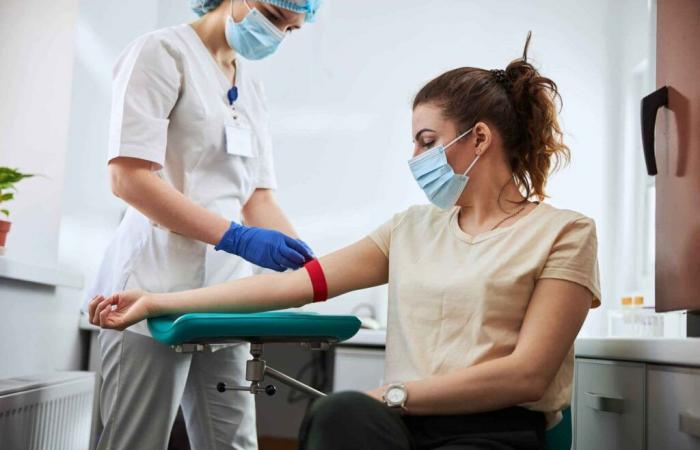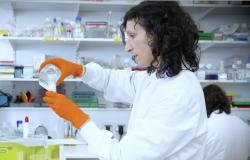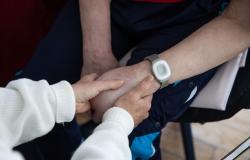If from the start of the HIV/AIDS epidemic, Algeria invested in the response to AIDS in a proactive and determined manner through a political commitment regularly reaffirmed and translated into substantial funding with more than 95 % of the budget allocated by the Public Treasury which guarantees, free and universal, all services, certain taboos persist, which dissuades many people from getting tested. This is why specialists consider it important that social factors are taken into account in prevention and awareness strategies, in order to create an environment where people feel supported and safe to get tested and follow treatment. Explanations!
In Algeria, HIV/AIDS is a disease with low prevalence in the general population, but it is concentrated within so-called key populations, identified in the National Strategic Plan as priorities for prevention interventions, first affirms Othmane Bourouba , president of AIDS Algeria.
Please note that these populations include sex workers (SP), men who have sex with men (MSM) and injecting drug users (IDU). “These groups, often marginalized and particularly vulnerable, constitute an important reservoir of the epidemic,” explains Mr. Bourouba. They can, according to him, play the role of “bridge populations”, capable of transmitting HIV to the general population through their interactions.
This is why he believes that this situation requires specific and adapted efforts to strengthen prevention, screening and care actions, while reducing the social barriers and stigma that complicate their access to health services. In terms of figures, Mr. Bourouba says that since 1985, around 24,000 people living with HIV have been identified in Algeria. “However, current estimates suggest that there are between 26,000 and 28,000 cases,” he continues.
Affirming in passing that these figures only represent the visible part of the iceberg. The reason: “a large proportion of people living with HIV have probably not yet been screened”. This is partly explained, according to him, by the fact that many people discover their status at a late stage of the disease, which complicates their care and increases the risks of transmission.
Mr. Bourouba also affirms that almost half of people living with HIV are women, which highlights the need to particularly target this group in prevention and screening efforts. “Moreover, fewer than 200 children are born with HIV each year, which demonstrates progress that remains to be made in the prevention of mother-to-child transmission,” he continues.
These data highlight, according to him, the urgency of strengthening early and targeted screening efforts, particularly among key populations and vulnerable groups, to improve detection, rapid access to treatment and limit the risks of transmission.
“While it is true that the prevalence of HIV/AIDS in Algeria is low in the general population, it is nevertheless concentrated in key populations,” says Othmane Bourouba. According to him, the prevalence is 1.1% among injecting drug users (IDU), 4.4% among SWs and 14.4% among MSM. These data show, according to Mr. Bourouba, that the epidemic is particularly present in these vulnerable groups. “However, it is important to note that there has been an evolution of new infections since 2019/2020, with an increase of more than 2,000 cases in 2023,” he points out.
In his opinion, this upward trend in new infections is “a sign that epidemic prevention and control efforts have not yet succeeded in reversing this dynamic. Since 2019, more than 2,000 new cases have been recorded, which is a source of concern,” he says.
To this end, Othmane Bourouba calls for caution: “It is crucial not to forget that sub-Saharan countries started with a similar situation, with a low initial prevalence, before experiencing an explosion of the epidemic.”
Therefore, he believes that Algeria must remain vigilant and continue its efforts to contain the epidemic, in order to avoid a similar situation. “Vigilance is required to avoid an uncontrolled spread of HIV in the country,” he concludes.
And the State has not skimped on the means to try to limit contamination by the virus. “Effectively, the State has set up several prevention and awareness programs through different stakeholders in the national response, coordinated by the National Committee for the Prevention and Control of STIs/HIV/AIDS), which brings together several institutional actors (11 ministries) and associations (4 thematic NGOs),” says Mr. Bourouba.
According to him, these actions are detailed in the National Strategic Plan to combat STIs/HIV/AIDS 2024-2028, which covers all priority aspects of the national response, with particular attention to prevention in a holistic manner, in order to to reduce the impact of the epidemic in Algeria.
Moreover, the National Strategic Plan to combat STIs/HIV/AIDS (2020/2024) states that from the start of the HIV/AIDS infection epidemic, Algeria invested in the response to AIDS in a proactive and determined manner, through a political commitment regularly reaffirmed and translated into substantial funding with more than 95% of the budget allocated by the Public Treasury which guarantees, free of charge and universally, all services, including ARV treatment for all and a participatory and multisectoral approach that involved all government actors, civil society and development partners.
In this sense, Soraya Alem, director of UNAIDS in Algeria, affirmed, during the meeting organized on the occasion of the celebration of World AIDS Day, that “Algeria has always been a leader in the fight against HIV/AIDS at the regional level, establishing free access to treatment since 1998. In terms of actions, we first find awareness and prevention campaigns.
These are, according to Mr. Bourouba, organized in several structures, notably universities, university residences, mosques, as well as through the media and communication. “These campaigns target the general population, particularly young people, to strengthen prevention and combat stigma,” he explains.
Then there are screening programs. Indeed, no less than 68 screening centers have been set up throughout Algeria, in order to encourage early screening and quickly identify people living with HIV. There is also training for stakeholders.
These are provided to all actors involved in the response to HIV, whether institutional or community, to guarantee appropriate and non-stigmatizing practices. “Regulations have also been established to ensure optimal care, particularly in terms of treatment, while guaranteeing that this care is provided in a respectful and non-stigmatizing environment,” continues Mr. Bourouba.
Still in terms of actions carried out by the State, there are care centers. These centers not only provide treatment services to people living with HIV, but also play a vital role in prevention through viral load reduction.
“The U=U principle (Undetectable = Untransmittable) is widely promoted, which means that a person living with HIV and having an undetectable viral load cannot transmit the virus to their partners,” explains M . Bourouba. According to him, these actions show a national commitment to prevention, early detection and access to quality care, with the aim of reducing the impact of HIV/AIDS in Algeria.






